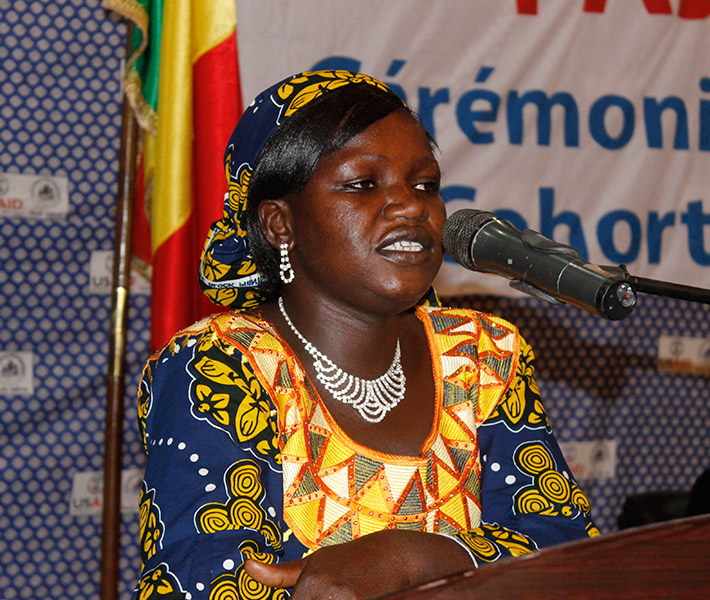Youth and Workforce Development Investing in Youth, Investing in the Future
“We heard over and over again that because of PAJE-Nièta, youth finally felt able to contribute to their families and communities. Unlike some of their peers, they didn’t have to leave home to build a better future.”
In 2015, EDC’s USAID-funded Mali Out-of-School Youth (PAJE-Nièta) project continued to provide essential opportunities for youth in Mali, empowering them to reinvest in themselves and their communities.
More than 6,800 youth in the project’s third (and largest) cohort completed technical trainings in income-generating activities such as agriculture, soap making, carpentry, and poultry raising. Now youth are running their own microenterprises and building lives where they—and others in their communities—can prosper. Since the project began in 2010, 10,951 youth participants have gained the skills, knowledge, and resources needed to build their own microenterprises.
One beneficiary is Goundo Kouyate, who received the materials to launch her own microenterprise after completing training in grain cultivation. Now she grows and sells peanuts, maize, cowpeas, and sesame in the village of Dioumara Koussata.
“All the success I have had on my plots is due to the Mali Out-of-School youth technical trainings,” she says. “Before the project, I knew absolutely nothing about any of this, and today I am a reference for others.”
FY 2015
Key Project Milestones
- An independent evaluation on countering violence extremism finds that the Mali Out-of-School Youth project significantly boosted economic opportunities for youth, leading to reduced vulnerability to radical narratives and the lure of extremist recruitment.
- The project’s basic education materials in reading and writing in mother tongue, math, and functional French are officially transferred to the Ministry of National Education, ensuring their continued use.
- 91 percent of women and 80 percent of men in the third cohort complete technical training, evidence that the project model greatly empowered women.
